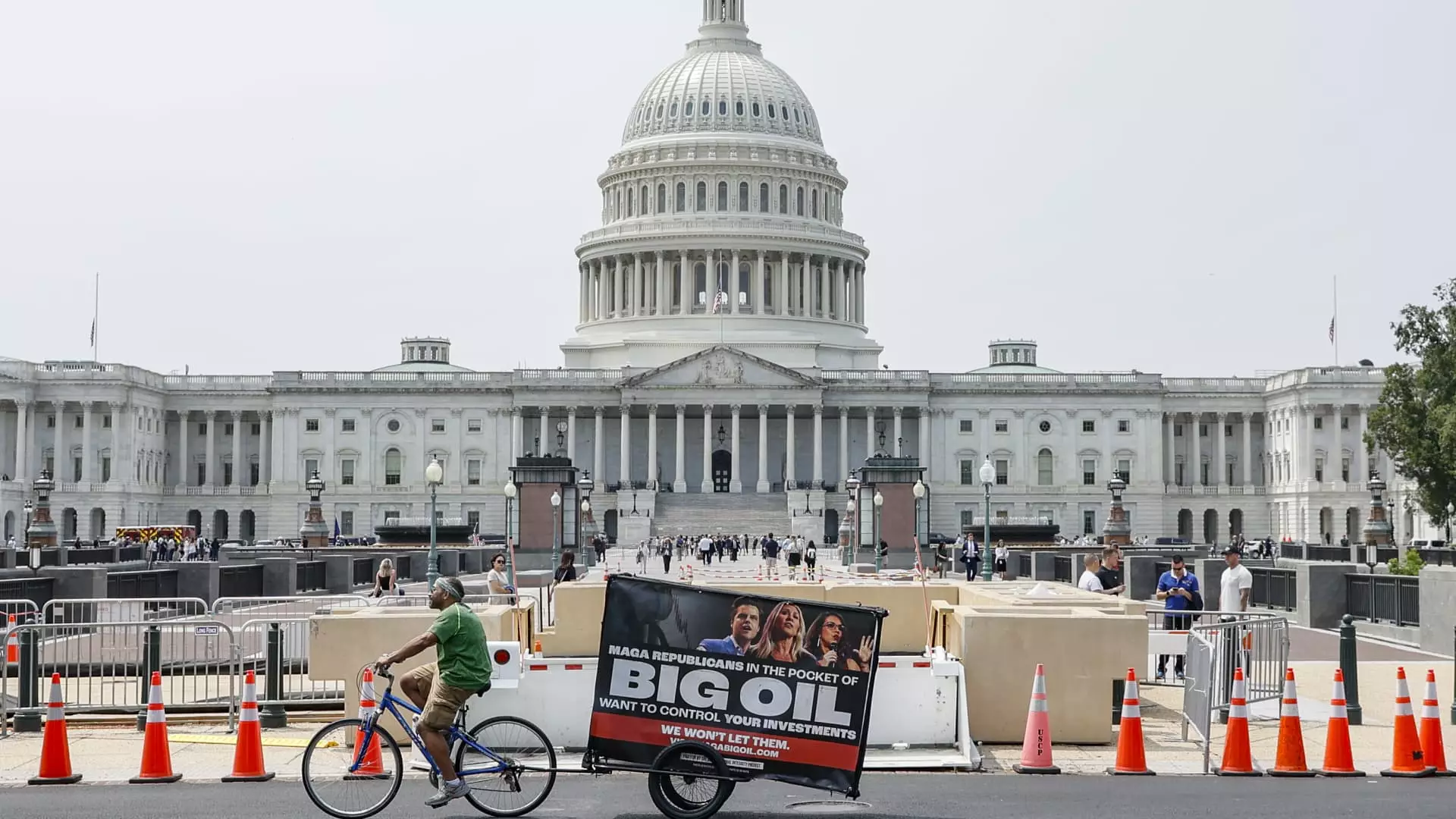In recent years, the once-buzzing realm of Environmental, Social, and Governance (ESG) investing has experienced significant turbulence. A sharp political pushback against the principles of sustainability combined with rising interest rates and economic headwinds has led to considerable outflows from ESG funds. Despite this, financial analysts argue that the underlying fundamentals and long-term investment potential of ESG-focused funds remain robust. Contrary to fears that ESG investing is hobbled by the political climate, many believe the demand for responsible investment strategies will persist, fueled by evolving investor preferences.
Diana Iovanel, a senior markets economist at Capital Economics, points out that even the most recent shifts in the political landscape and regulatory environment in the U.S. aren’t a death knell for ESG investing. In fact, she argues that the systemic nature of climate change and social equity issues ensures a continuous demand for investments that align with these values. The staggering withdrawal of nearly $20 billion from U.S. ESG funds in 2024 stands in stark contrast to an overall influx of $740 billion across mutual funds and exchange-traded funds (ETFs) during the same period, highlighting the divergent trends within the investing landscape.
Shifting Investor Dynamics
The retreat from ESG funds by certain investors, particularly during the last two years, reflects a broader backlash against what is often perceived as “woke capitalism.” Critics dismiss ESG as a mode of investing that sacrifices long-term financial gain for the sake of lofty social goals. Yet, this critique may overlook the fundamental principle that responsible investing is increasingly becoming aligned with higher long-term returns. Companies that excel in ESG criteria often demonstrate resilience and the ability to adapt to changing market conditions, positioning themselves for success over the long haul.
The drop in inflows to ESG funds, however, does not fully encapsulate the complex realities of investor sentiment. Analysts highlight that a marked interest in sustainable investing persists, particularly among younger demographics. A notable 2024 survey from Morgan Stanley revealed that a whopping 84% of individual American investors are inclined towards sustainable investment strategies, with two-thirds reporting heightened interest in the past few years. This suggests that the call for investments aligned with personal and societal values continues to gain traction, even amidst formal outflows.
The Influence of Political Climate
The political climate surrounding ESG investing has undoubtedly taken a hard turn since the Trump administration. Within the first days of taking office, blunt moves to retract U.S. commitments to climate accords and reduce support for clean energy initiatives sent tremors through the ESG investing community. The uncertainty surrounding the future of laws like the Inflation Reduction Act further complicates the landscape for ESG investors, establishing a worrying atmosphere for those favoring sustainable investment options.
In addition to legislation, the backlash from Republican-led states seeking to restrict the viability of ESG initiatives has prompted some significant asset managers to reassess their commitments to sustainable investing. As of 2024, the number of ESG funds has contracted for the first time in history, falling to 587, indicating a 9% decline from the previous year. This contraction not only reflects the political climate’s chilling effect on ESG funds but also highlights the hesitance of asset managers to expose themselves to political backlash.
Challenges Beyond Politics
Interestingly, while political factors play a role in the recent downturn, analysts also stress that the recent economic climate is a primary driver behind the struggles faced by ESG funds. High interest rates have disproportionately affected sectors like clean energy, which require significant capital investment and therefore suffer under elevated borrowing costs. Coupled with the recent upswings in oil and gas prices, ESG-centered portfolios have frequently lagged behind traditional portfolios heavily weighted in fossil fuels.
Nevertheless, it’s essential to remember that short-term performance anomalies do not define the viability of an investment strategy. Historical data directionally supports the thesis that ESG investing can yield favorable returns over time. In the realm of stocks, for instance, U.S. ESG-focused funds achieved returns surpassing non-ESG funds by approximately four percentage points in 2020, highlighting that sustainable investments can outperform in healthier economic conditions.
Long-term Investment Value
As the market evolves, so too must the understanding of what constitutes successful investing. Jennifer Coombs, head of content and development at the U.S. Sustainable Investment Forum, emphasizes that ESG-focused management is not synonymous with sacrificing returns in the name of social or environmental causes. Rather, it embodies a strategic approach to investment that prioritizes long-term risk mitigation, aligning with the conviction that organizations prioritizing ESG factors are likely to reap the benefits of innovation, resilience, and market adaptability.
The essence of ESG investing lies not in immediate gratification but in building a sustainable investment ecosystem wherein all stakeholders can thrive. Sustainable investing demands patience and diligence, as it is a long-term commitment toward a future that respects both people and the planet. The principles guiding ESG investing have the potential to unlock not only favorable financial outcomes but also deeper societal benefits that pave the way for a more sustainable world. As investor awareness continues to grow, the long-term resilience of ESG investing may ultimately redefine the investment landscape itself.

